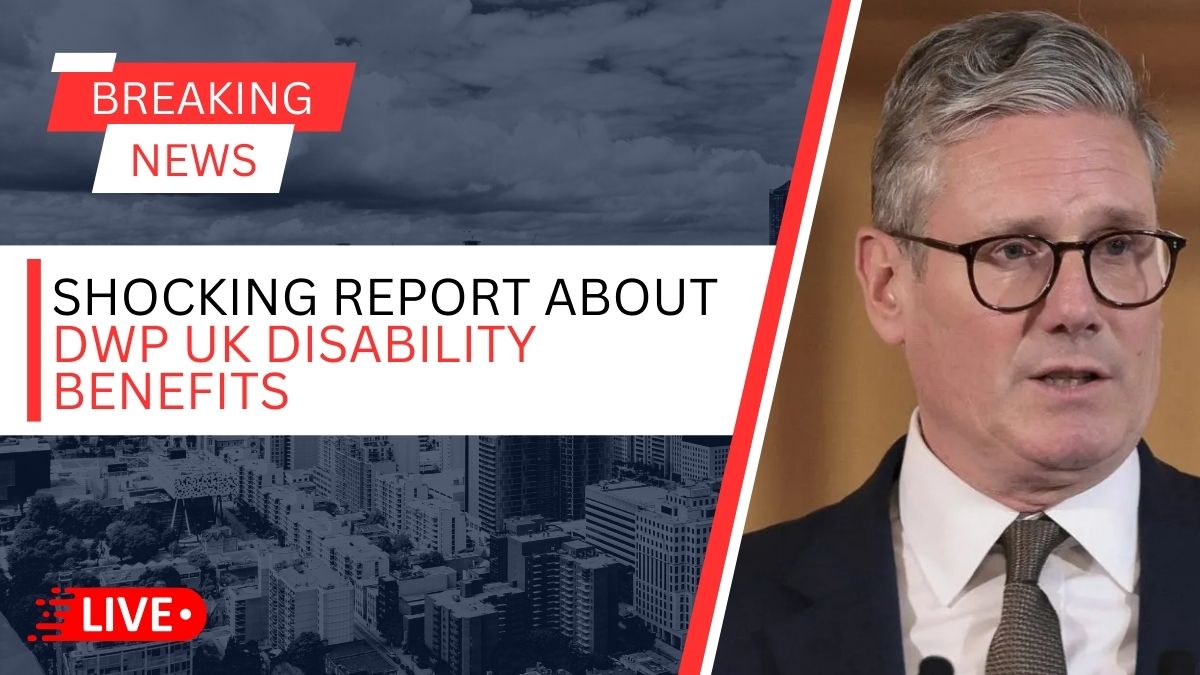DWP Cancels for more than 200,000 citizens The personal Independence Payment Peep Server is an important financial support machine for people in the UK who have a health situation that makes them permanently disabled.
Have you ever thought about how the government helps people who have disabilities or long-term health problems? It’s called Personal Independence Payment, or PIP, and it’s given to people who need it in the UK. It’s meant to help people who need extra help with their daily bills. Recently, though, there have been some big changes that touch a lot of people. Let us look around and see what’s going on!
Table of Contents
What’s PIP and Why Does It Matter?
PIP is like a helping hand from the government. It gives money to people who have trouble doing everyday things because of health issues or disabilities. This could be anything from having trouble walking to needing help with personal care.
Who’s in Charge of PIP?
The Department for Work and Pensions, or DWP, runs the PIP program. They’re the ones who decide who gets the money and how much. It’s a big job because there are millions of people who need this help!
DWP Cancels PIP for Many People
Here’s where things get a bit shocking. The DWP recently looked at a bunch of people who were getting PIP and decided that some of them don’t need it anymore. How many? Well, hold onto your hats…
Over 200,000 People Lost Their PIP
That’s right, more than 200,000 folks had their PIP taken away. Can you imagine how that might feel? For many, it’s probably pretty scary. This money helps them live their daily lives, and now it’s gone.
Breaking Down the Numbers
- About half (52%) of people kept getting the same amount of money.
- Some lucky folks (19%) actually got more money.
- A small group (8%) got less money than before.
- But here’s the big one: 20% of people lost their PIP completely.
Why Did This Happen?
The DWP says they have to check if people still need PIP from time to time. Sometimes people’s health gets better, or their needs change. But still, that’s a lot of people losing their support!
How PIP Works?
To understand why this is such a big deal how PIP usually works:
PIP is for adults who have trouble with daily activities or getting around because of a disability or health condition. It doesn’t matter if you work or not – it’s all about what you need help with.
How Much Money Can You Get?
PIP has two parts:
- Daily Living Part: For help with everyday tasks
- Mobility Part: For help with getting around
You can get one or both parts, and the amount can be different for each person. Some people get a little, others get a lot.
How Often Do They Check?
The DWP doesn’t just give you PIP and forget about you. They check in every now and then to see if your needs have changed. This is called a reassessment.
Big Picture PIP Across the UK
England and Wales
As of January 2024, about 3.3 million people in England and Wales were getting PIP. That’s a lot of people, right? It’s even more than a few months ago.
Scotland
Scotland has its own system now called Adult Disability Payment (ADP), but there are still about 220,000 people there getting PIP.
Who Gets the Most Help?
Interestingly, about one in three people (36%) who get PIP receive the highest amount possible. This shows that there are many folks out there with serious needs.
Why Are Things Changing?
- More people are applying for PIP than ever before.
- The DWP is struggling to keep up with all the applications and checks.
- Big events like the COVID-19 pandemic have made things even more complicated.
A Flood of New Claims
The DWP says they’re facing an “unprecedented” demand for PIP. This could be because:
- More people know about PIP now and are applying.
- The population is getting older, and older people often need more help.
What Happens When You Apply for PIP?
- You send in your application.
- The DWP looks at it and decides if you qualify.
- If you do, they decide how much money you should get.
- They tell you their decision.
What If You Don’t Agree?
If you think the DWP made a mistake, you can ask them to look at your case again. This is called a Mandatory Reconsideration (MR). Here’s what the numbers tell us:
- About 34% of people who ask for an MR end up appealing the decision.
- Of those appeals, 47% see a change in the decision before it even gets to a tribunal.
This shows that it can be worth speaking up if you think a mistake has been made!
The Impact on Real People
Now, let’s think about what all this means for actual people. do you Things you’re someone who relies on PIP to help pay for things like
- Special equipment to help you move around
- Extra heating because you’re often cold due to your condition
- Help with cooking or cleaning
The Stress of Reassessment
Even for people who keep their PIP, the process of being reassessed can be really stressful. You might worry:
- Will they understand my condition?
- What if I’m having a good day when they assess me?
- How will I manage if they reduce my payment?
Looking to the Future
So, what does all this mean for the future of PIP and disability benefits in the UK?
Challenges for the System
The DWP is facing some big challenges
- They need to process more claims than ever before.
- They have to make sure they’re being fair to everyone.
- They need to balance helping people with managing their budget.
What Might Change?
There’s talk about ways to improve the system
- Making assessments more accurate and fair
- Speeding up the process of applying and getting decisions
- Finding better ways to understand people’s changing needs over time
What Can You Do?
If you’re getting PIP or thinking about applying
- Keep good records of your condition and how it affects you.
- Be honest about your bad days as well as your good days.
- If you don’t agree with a decision, don’t be afraid to ask for it to be looked at again.
- Reach out to support groups or charities that can help you understand the process.
Wrapping It Up
We’ve covered a lot of ground, haven’t we? Let’s sum up the main points:
- PIP is a crucial support for many people with disabilities or health conditions.
- The DWP recently cancelled PIP for over 200,000 people.
- This has had a huge impact on many lives.
- The system is under pressure with more people applying than ever.
- There are challenges, but also talks about how to make things better.
Remember, if you’re affected by these changes, you’re not alone. There are people and organizations out there who can help you understand your rights and get the support you need.
Have you or someone you know been affected by changes to PIP? It’s a complex issue, and everyone’s experience is different. But one thing’s for sure – it’s an important conversation that affects a lot of people in the UK.
Conclusion
There’s no doubt that the PIP System is changing in big ways. Some people have had a really hard time with these changes. Imagine finding out one morning that you no longer have the money you’ve been counting on. Not fun at all!
It’s not all bad news, though. The government says they want to make the system more fair and work better. Some people think they’re successful, but not everyone agrees.
Remember that PIP is meant to help people who are having health problems live their best lives. Many people depend on it, even though it’s not perfect.
FAQs
What is PIP?
PIP stands for Personal Independence Payment. It’s money from the UK government to help people with long-term health problems or disabilities.
Who can get PIP?
Adults between 16 and state pension age who have difficulties with daily living or mobility due to a health condition or disability can apply for PIP.
How much money can I get from PIP?
PIP has two parts – daily living and mobility. You can get up to £92.40 per week for daily living and up to £64.50 for mobility, as of 2024.
How often do they check if I still need PIP?
The DWP does regular reviews, which can be anywhere from annually to every 10 years, depending on your condition.
What happens if they cancel my PIP?
If your PIP is cancelled, you can ask for a mandatory reconsideration. If you still disagree, you can appeal to a tribunal.
How do I apply for PIP?
You can start your application by calling the PIP claim line. They’ll send you a form to fill out, and you might need to have an assessment.
























